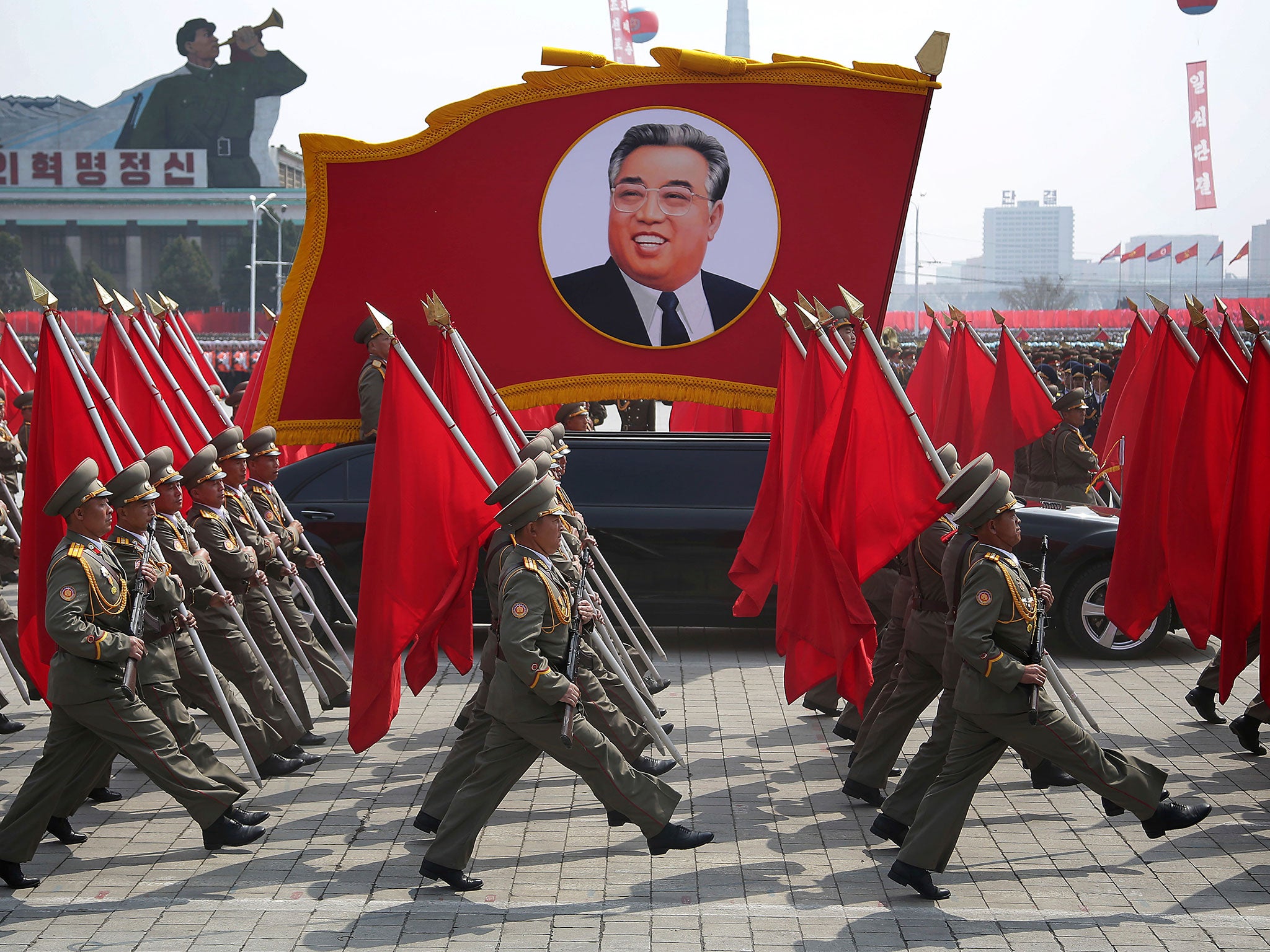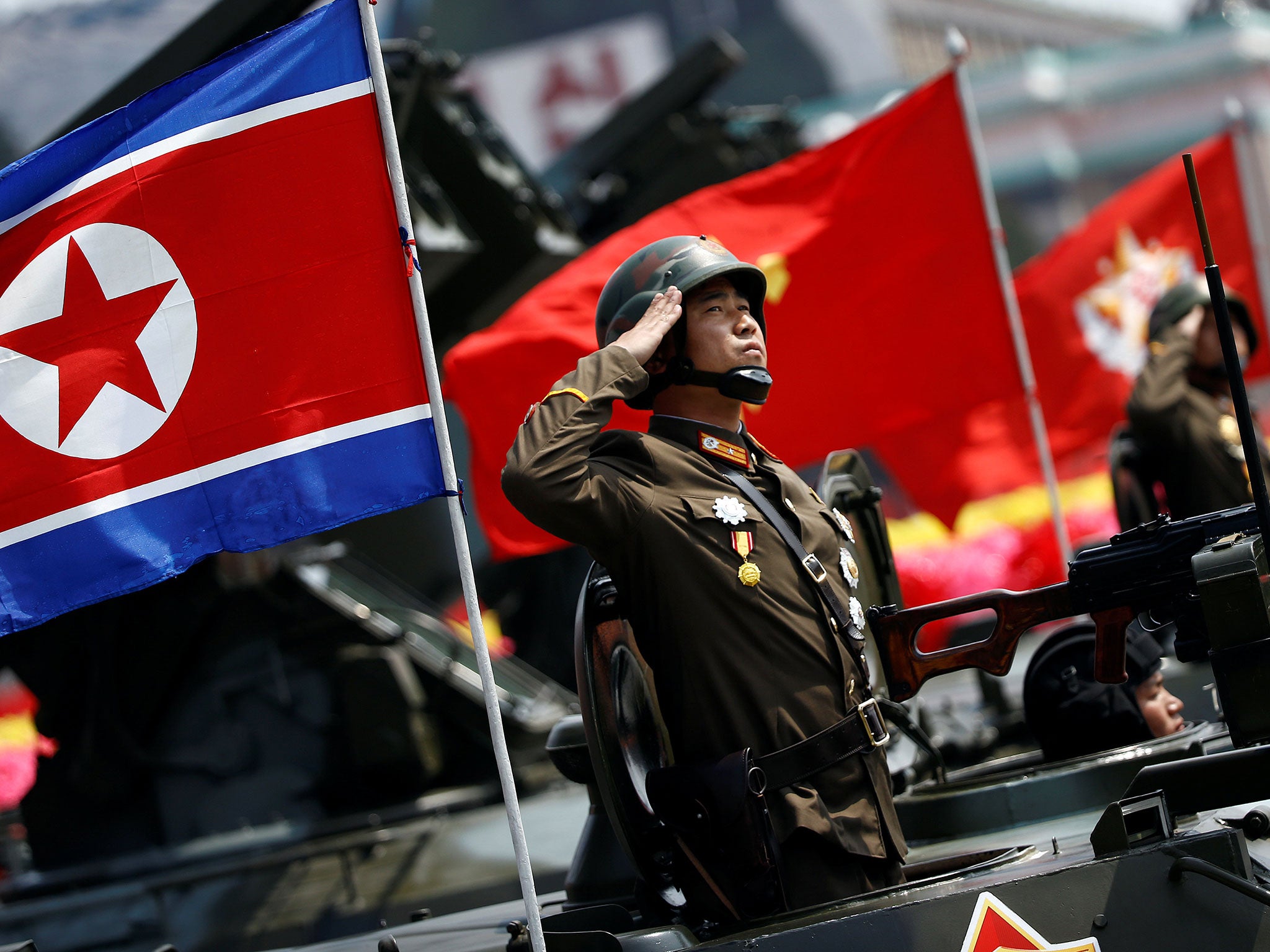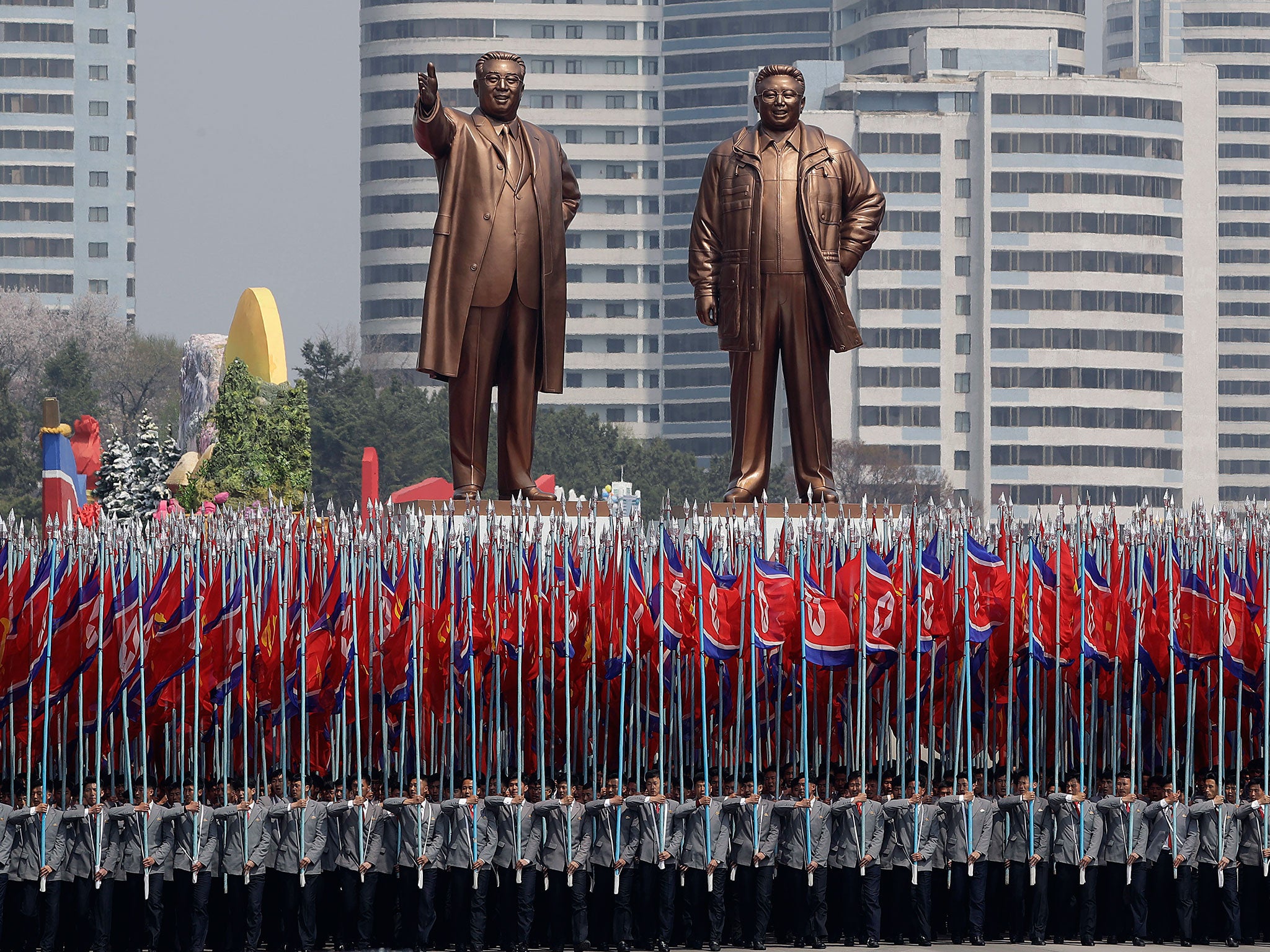North Korea at 70: How the personality cult of Kim Il-sung shaped a nation
Much-mythologised biographies of Kim dynasty leaders a crucial tool in controlling the people and ensuring their loyalty to communist cause
Your support helps us to tell the story
From reproductive rights to climate change to Big Tech, The Independent is on the ground when the story is developing. Whether it's investigating the financials of Elon Musk's pro-Trump PAC or producing our latest documentary, 'The A Word', which shines a light on the American women fighting for reproductive rights, we know how important it is to parse out the facts from the messaging.
At such a critical moment in US history, we need reporters on the ground. Your donation allows us to keep sending journalists to speak to both sides of the story.
The Independent is trusted by Americans across the entire political spectrum. And unlike many other quality news outlets, we choose not to lock Americans out of our reporting and analysis with paywalls. We believe quality journalism should be available to everyone, paid for by those who can afford it.
Your support makes all the difference.North Korea celebrates the 70th anniversary of its founding on Sunday, the occasion expected to be marked with the usual spectacular display of military might.
Tanks will roll into Pyongyang as soldiers march in formation brandishing rifles and flags bearing the image of the country’s first supreme leader, Kim Il-sung, grandfather to the current ruler, Kim Jong-un.
The communist state, which finally broke free of Japanese imperial rule in 1948, remains in thrall to the Kim dynasty decades later, the regime run as a Stalinist personality cult from its earliest days.
Kim Il-sung is honoured with more than 500 statues across the land, oil portraits of him, his son and grandson hang in every home and citizens are expected to wear patriotic pins on their lapels and swallow the family’s much-mythologised history without question, believing it whole-heartedly or too frightened to express private doubts publicly.
The legend of the country’s founding and Kim’s biography in particular is taught to school children in every “Kim Il-sung Research Institute”, where they learn “the grace of the chairman” is the reason for their being clothed and fed.
They also learn that Kim does not urinate or defecate because he is a perfect being, according to defector Kang Chol-hwan.
“My whole life is the epitome of the history of my country and my people,” Kim states in his eight-volume memoir, ghost-written by a team of patriotic novelists.
The book tells of his birth on 15 April 1912 – the same day the Titanic sank, as it happens – and his infancy in the village of Mangyondae on the North Jeolla Province on outskirts of Pyongyang.
Here Kim was raised by a family of farmers and cemetery groundskeepers, whose lowly status is offered in the autobiography as a symbol of Korea’s subjugation to its Japanese overlords.
Kim’s father, Kim Hyong-jik, was a teacher and self-taught physician who read his son bedtime stories about Vladimir Lenin and the October Revolution.
At five, the boy pronounced an intense hatred of Japan while being pushed on a swing by his mother, we are told. At six, in 1919, he joined the March 1st Movement calling for freedom.

“When the adults cheered for independence, I joined them,” he is quoted as saying. “The enemy used swords and guns indiscriminately against the masses… This was the day when I witnessed Korean blood being spilled for the first time. My young heart burned with indignation.”
Kim was on the path to guerrilla warfare early – it says here – beating up Japanese boys larger than himself, laying traps to puncture policemen’s bicycle tyres on rural roads and defacing school textbooks with revolutionary slogans.
When the family were exiled to Manchuria for dissent, Kim’s father passed away, leaving his 14-year-old son with the words: “You must not forget that you belong to the country and the people. You must win back your country at all costs, even if your bones are broken and your body is torn apart.”
Kim’s commitment to socialism is said to have taken hold during his tenure at the Yuwen Middle School in China’s Jilin Province, joining the Marxist underground in his late teens and then the Communist Party of China in 1931.
Taking part in anti-Japanese operations in Manchuria throughout the 1930s, the Second World War saw him become a wanted man, known as “The Tiger” to the Japanese troops who knew of him as a dangerous guerilla leader. It was during this time that Kim rebranded, discarding his given name of Kim Song-ju for his more famous moniker, meaning “Kim become the sun”, an early clue to his image consciousness.
When Kim encountered the Red Army on the banks of the Amur River, a beautiful friendship was born.
After Soviet tanks entered Pyongyang, Lavrentiy Beria nominated Kim as the region’s new leader. Joseph Stalin accepted and the rest is history.
Learning the importance of public image as a tool of statecraft from his Russian sponsors – who would prop up the regime financially until the collapse of the USSR in 1991, after which the country swiftly fell into famine - the cult of Kim began to take root in 1949.
It truly gained traction after the Korean War when the stories of the “Dear Leader’s” youth and philosophy of “juche” (patriotic self-reliance) became commonplace.
“If North Korean state mythology resembles elements of organised religion, it is more like Scientology, than Christianity or Islam,” historian Christopher Richardson has written.
The stories became even more sensational in relation to his son and heir, Kim Jong-il.

The latter is said to have been born at his father’s secret military base on Mount Paektu, his arrival on earth heralded by a swallow’s flight, the changing of the seasons from winter to spring and the appearance of a rare double rainbow in the sky.
Kim Jong-il was a child prodigy, state propagandists insist, able to walk and talk at the age of six months and showing an early aptitude for military strategy worthy of Napoleon Bonaparte. As an adult, the state news agency assured the people his fashion sense was admired in Paris.
Both Kim Il-sung and his son have flowers named after them, an orchid and begonia respectively, the former’s at the insistence of former Indonesian dictator Sukarno.

When Kim Il-sung died in 1994, the regime spent millions renovating the Kumsusan Memorial Palace, where his embalmed body would lie in state, at a time when the people were starving. Anyone not thought to be sufficiently devastated by his passing during a 10-day mourning period was quietly led away.
Three years later, North Korea replaced the Gregorian calendar with the Juche Era dating system, resetting the date so that time begins in 1912 with the birth of Kim Il-sung. In 1998, he was crowned “eternal president of the republic”.
The country’s 70th anniversary comes at an interesting juncture for the rogue nuclear state.
After months of missile testing in brash defiance of the international community and the trading of insults with US president Donald Trump, relations with the wider world have thawed considerably, apparently pulling the communists back from the brink of war.
The appearance of Kim Jong-un’s sister, Kim Yo-jong, as a delegate at the Pyeongchang Winter Olympics in February marked the first time since the end of the Korean War that a member of her family had set foot in the South, her handshake with president Moon Jae-in promising restored relations.
A summit between her brother and President Moon later this month - following on from their own meeting at the border in April - promises much but observers are wary given how little came of President Trump’s much-touted encounter with Kim in Singapore in June.
So far, President Moon’s ambitions for the relationship, from joint economic projects to the reconnecting of cross-border railways, have been stymied by sanctions.
Whatever lies ahead for North Korea, the people’s reverence for their leader as an infallible father of the nation must be allowed to fall away before real change can take place.

Join our commenting forum
Join thought-provoking conversations, follow other Independent readers and see their replies
Comments